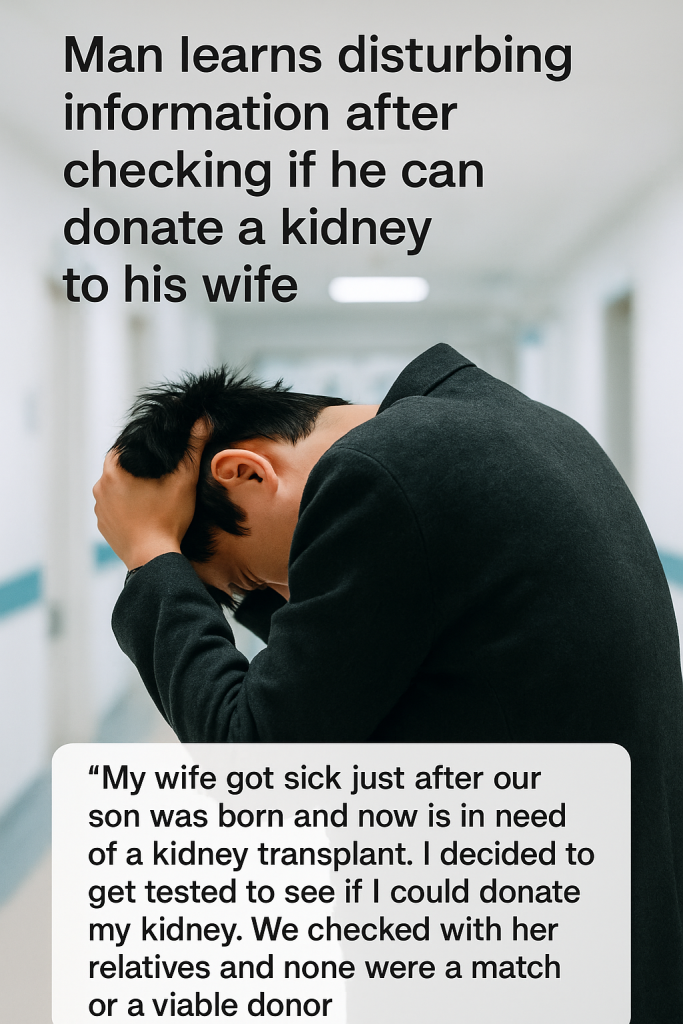In a poignant turn of events, a man hoping to donate a kidney to his wife has uncovered deeply unsettling information that has added complexity to an already harrowing family ordeal. The wife, who became critically ill shortly after the couple’s newborn son arrived, has been battling a severe kidney condition prompting the husband to explore living-donor transplantation as a potential lifeline.
The couple’s story began as many joyful tales do, with the birth of a child bringing hope and happiness. However, within weeks, the wife’s health began deteriorating rapidly. Diagnosed with an advanced kidney failure disorder, doctors recommended dialysis and ultimately, a kidney transplant.
Driven by love and urgency, the husband underwent an extensive battery of medical tests to determine his eligibility to donate a kidney. Initial assessments seemed promising, but during the evaluation process, disturbing findings emerged that raised concerns not just about compatibility, but about the wife’s underlying condition and its causes.
Medical experts involved in the testing revealed that the wife’s illness included complexities beyond typical kidney failure. The tests suggested potential autoimmune components or underlying genetic factors previously undetected. These startling revelations have shifted the focus from a straightforward transplant to a more nuanced and cautious approach to treatment.
Adding to the emotional weight, the husband also discovered that certain health risks might affect his own well-being in the long term if he proceeds with donation under the current circumstances. Doctors cautioned that hastily moving forward without a full understanding of the wife’s condition could jeopardize both patients’ health.
This case highlights the critical importance of comprehensive medical evaluations for living donors and recipients alike. Transplant specialists emphasize that kidney donation is a life-saving but complex procedure requiring multidisciplinary assessment to balance benefits against risks.
The husband’s willingness to donate underscores the powerful bonds of family even in times of crisis. Yet, the unexpected medical complexities they uncovered serve as a reminder that illnesses can hide layers of difficulty beneath initial diagnoses.
As the couple navigates further testing and consultations with nephrologists and immunologists, their situation serves as a poignant example of how medical miracles sometimes come paired with sobering truths. The family hopes that increased awareness around the challenges of kidney transplantation in complicated cases will encourage other families facing similar trials to seek thorough medical guidance.
For now, the husband continues to stand by his wife’s side, advocating for the best possible care for her and their newborn son. Their journey sheds light on the unpredictable nature of health crises and the extraordinary courage required to confront them.



